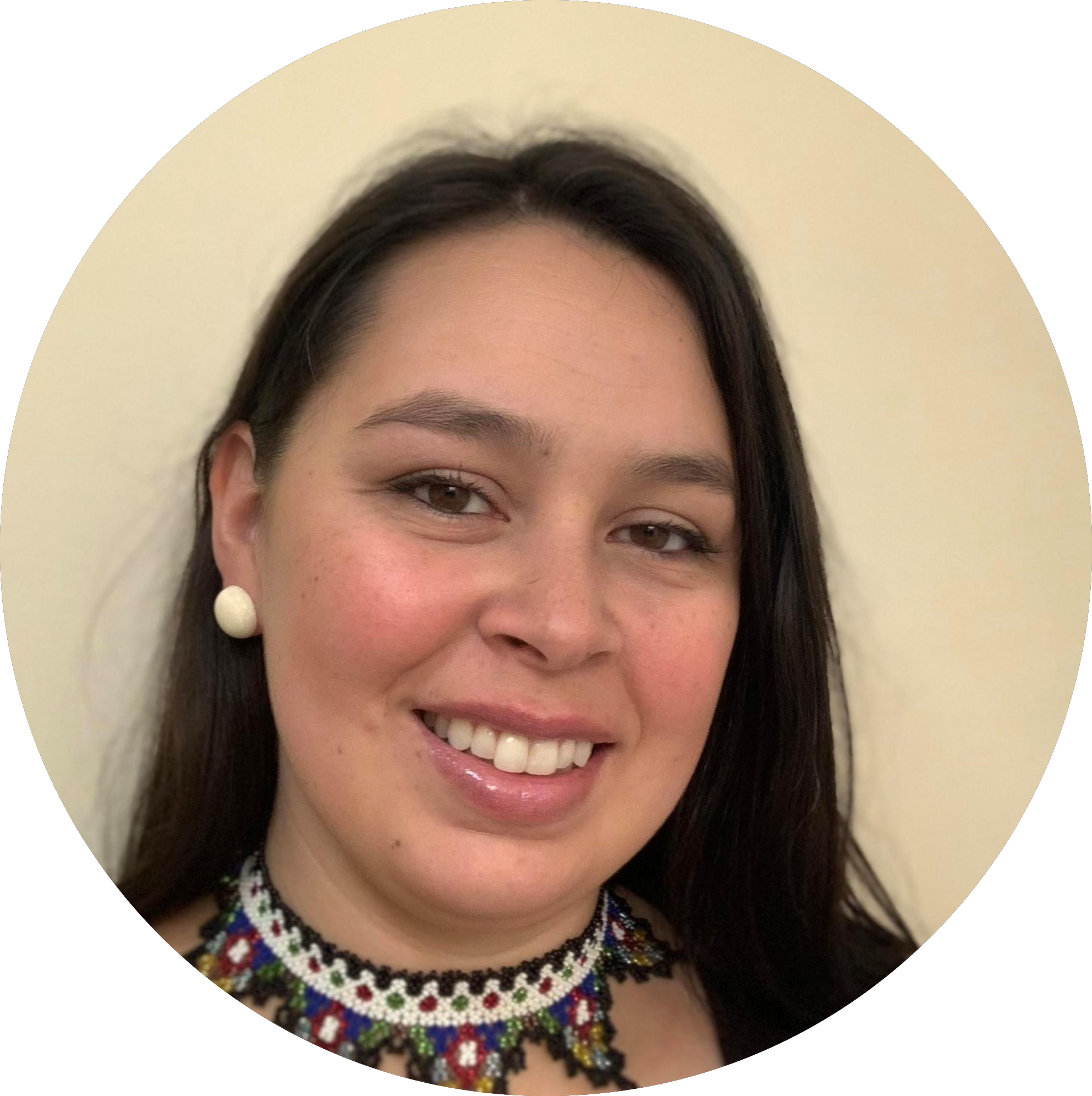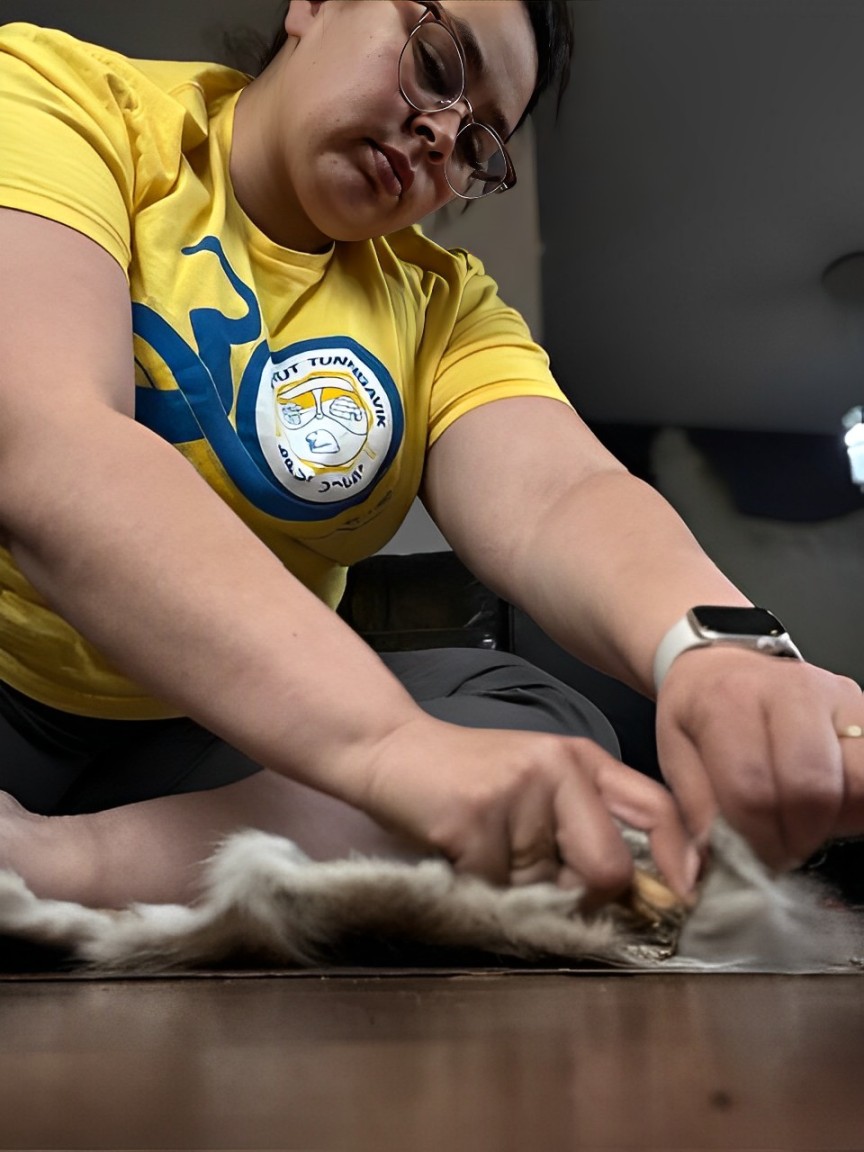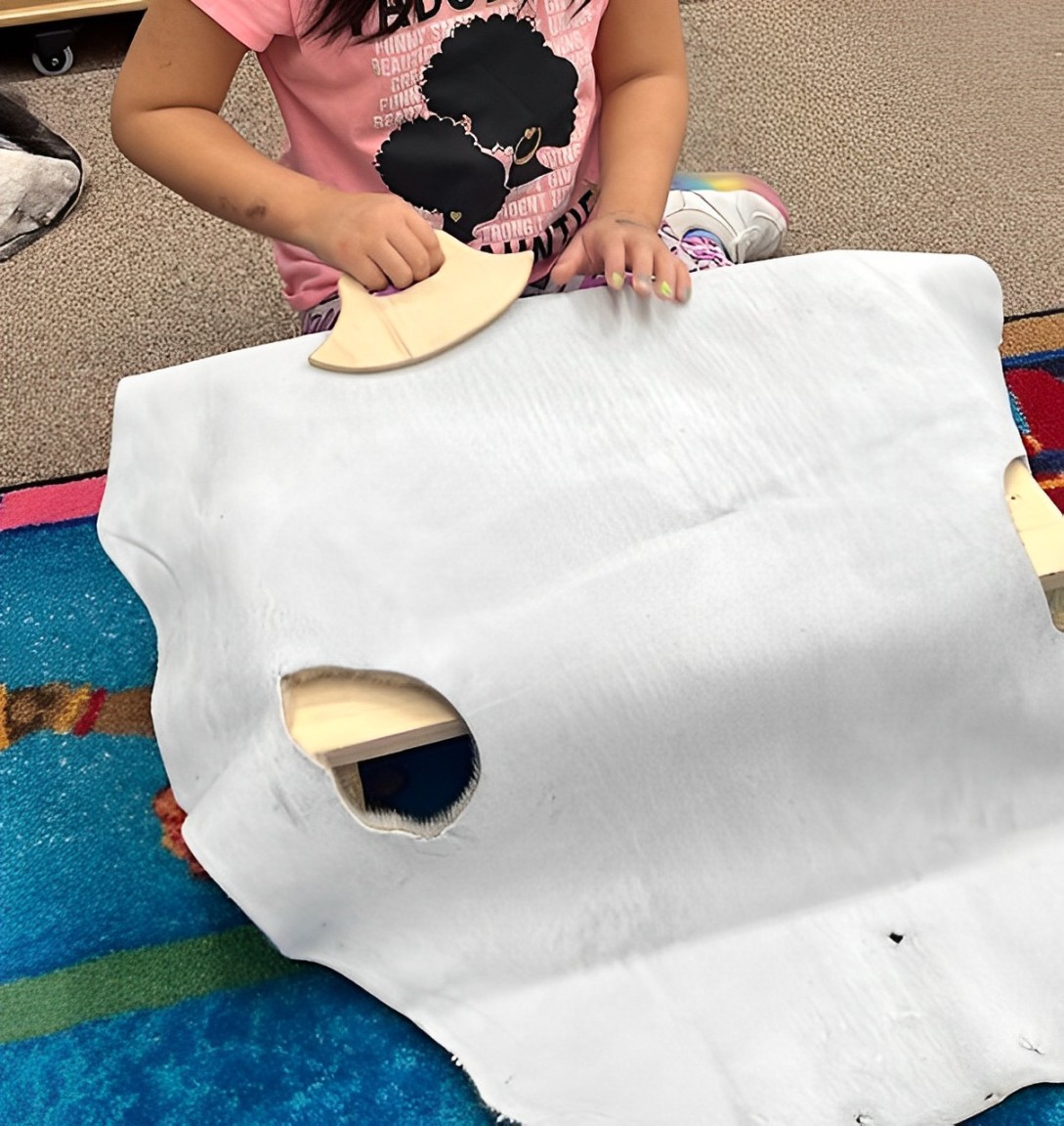Ashley Tulugak,
Elementary School Teacher
Ashley Tulugak has taught a wide range of grade levels and courses since she became a teacher in 2008, and currently teaches two kindergarten streams: one in English and one in Inuktitut. She teaches at Leo Ussak School, a Kindergarten to grade 4 elementary school in Rankin Inlet, Nunavut. The student body in Ashley’s elementary school, about 300 students, is predominantly Inuit, and only a few students’ families are from southern Canada or are non-Indigenous. Ashley adjusts her language instruction for two different half-day streams. In the morning group, she aims for 70% English and 30% Inuktitut instruction; in the afternoon she emphasizes Inuktitut, using second language acquisition techniques. Ashley notes that there is significant Inuktitut language loss in her community, which impacts the way she approaches her teaching.

Leo Ussak School
Rankin Inlet, Nunavut

Teaching & Learning
As Ashley explained, her mixed identity of Inuk from her mother and Swedish, Scottish, and English from her father’s side plays a pivotal role in her teaching practices.
Growing up, Ashley lived in several different Nunavut communities. Moving around gave her the opportunity to pick up different Inuktitut dialects from other communities, to spend time on the land in different regions, and to learn a variety of traditions and practices from Inuit teachers and knowledge holders.
“My teachers incorporated a lot of Inuit culture and local customs and teachings. We would go and listen to an Elder, and she’d tell stories. We got to ride on a dog team on the sea ice,” she said. These memorable experiences “influenced the kind of teacher that I am,” reflected Ashley. Including a wide variety of Inuit practices in her teaching “contributes to how creative I get with including culture and language in my class.”
Inuit culture and language is at the heart of education for Ashley, and it is also foundational to the wider community. Ashley said that she and her fellow Inuit teachers are “the language and knowledge keepers.”
According to Ashley, “We’re losing our Elders, and so it’s coming to a time where we’re the ones responsible to keep our identity alive and thriving.” As a result, Ashley “doesn’t want any Inuit educators to be intimidated by the colonial system and processes.” Ashley has grown in her confidence and looks out for her Inuit colleagues because if an Inuk teacher is intimidated by bringing culture and language into schools, she says, “it can really affect you, personally.”

Indigenous Knowledges
Ashley is committed to incorporating Inuit knowledges within her classroom, providing the opportunity for all her students to learn Inuit cultural practices whether they are accustomed to it or not.
Ashley brings local community members and Elders into her classroom to assist in her teaching, allowing for students to engage with enriched learning opportunities. For example, during seal hunting season, Ashley says, “we bring in a freshly caught seal and have a hunter or an Elder in to butcher the seal followed by a feast with the class.”
These meaningful cultural activities involve families and the larger community, bringing them together to create memorable experiences. Ashley feels that “it’s important to include traditional Inuit lifestyle and practices in my class so we have Elders demonstrating the real thing. And then we have the students imitating the demonstration.”
Ashley recognizes that some of her students are exposed to aspects of Inuit culture, such as country food harvesting or feasting, at home with their families, whereas others do not get those opportunities. Regardless of their starting point, her classroom “provides an opportunity for them, as a peer group, to eat and learn together,” Ashley said.
As a result, Ashley finds that her students are “happy to come to school. It doesn’t feel like work because the classroom, our school, feels like a safe place that students feel is a joyful place to go.”
Co-created by Ashley Tulugak, Kyle Raymond, and Dr. Heather McGregor
